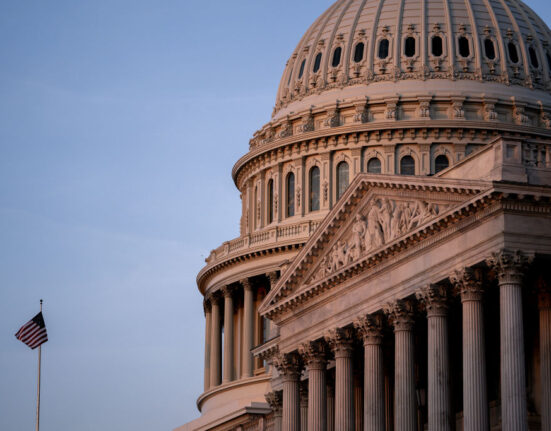
U.S. President Donald Trump announced on Tuesday a host of new tariffs that sent the stock prices of numerous tech giants plummeting. He applied individual “reciprocal” tariffs to several nations, equivalent to half of its trade deficit with the U.S., and a baseline 10% levy on all imports.
- Goods from Vietnam are now subject to a 46% reciprocal tariff
- 32% on imports from Taiwan
- 26% from India
Additionally, China faces a 34% reciprocal tariff, which is on top of the 20% tariff that has been in effect since March.
By Thursday’s close, NVIDIA’s stock had fallen by nearly 8% as a result of the tariffs announcement, while Amazon and Meta dropped by 9% each, according to CNBC. Apple led the declines, tumbling 9% — its steepest drop since the COVID-induced market sell-off in March 2020.
Shares of Microsoft and Alphabet both fell about 2% and 4%, respectively. The Nasdaq Composite Index, a benchmark heavily weighted toward tech stocks, dropped by almost 6%. This is all due to fears that their operational costs will rise and that supply chains, which rely heavily on overseas manufacturing and imports, will be disrupted.
Much of the so-called “Magnificent Seven” – Apple, Microsoft, Alphabet, Tesla, NVIDIA, Meta, and Amazon – took another hit during Friday’s trading, after China retaliated with a 34% tariff on imports from the U.S.. Both NVIDIA and Apple dropped 7%, according to Yahoo Finance, while shares in Meta sank by more than 5%. And CNBC reported on Friday that the “Magnificent Seven” lost a combined $1.8 trillion in market value over the past two days.
As of today, cryptocurrency prices in particular are seeing a significant negative impact.
Company-level impact: Apple and NVIDIA
Apple products — primarily manufactured in China, India, and Vietnam — are likely to become more expensive as the company passes increased import costs on to U.S. consumers. Morgan Stanley analysts estimate that Apple’s profits could take a 7% hit in 2026 due to its annual costs rising by $8.5 billion.
U.S. chipmaker giant NVIDIA should be somewhat shielded from the impact due to Trump’s exemption on semiconductors, sparing it from the 32% tariff on chips manufactured in Taiwan by TSMC. However, it remains unclear whether the semiconductor exemption will also cover the 10% baseline tariff on all imports, and rumour has it that new tariffs on chips are coming soon.
Tariffs could ‘disrupt AI innovation’
The U.S. relies on China and Taiwan for approximately 80% of its foundry capacity for 20 to 45nm chips and about 70% for 50 to 180nm chips. Tech firms may attempt to shift sourcing to reciprocal tariff-free countries, but many will pass the additional costs to consumers instead.
Separately, Trump has revoked tariff exemptions on Chinese imports valued at $800 or less. This is particularly bad news for Amazon as many of the low-price goods listed on its marketplace are from Chinese sellers.
Analysts are concerned about potential retaliatory action from China, as the country’s Ministry of Commerce said it would “resolutely take countermeasures” if the U.S. does not “immediately cancel” its tariffs. Dan Ives of Wedbush Securities said in a note that tariffs from China could “constrict the supply chain for next-generation Nvidia chips/hardware,” disrupting AI innovation.








